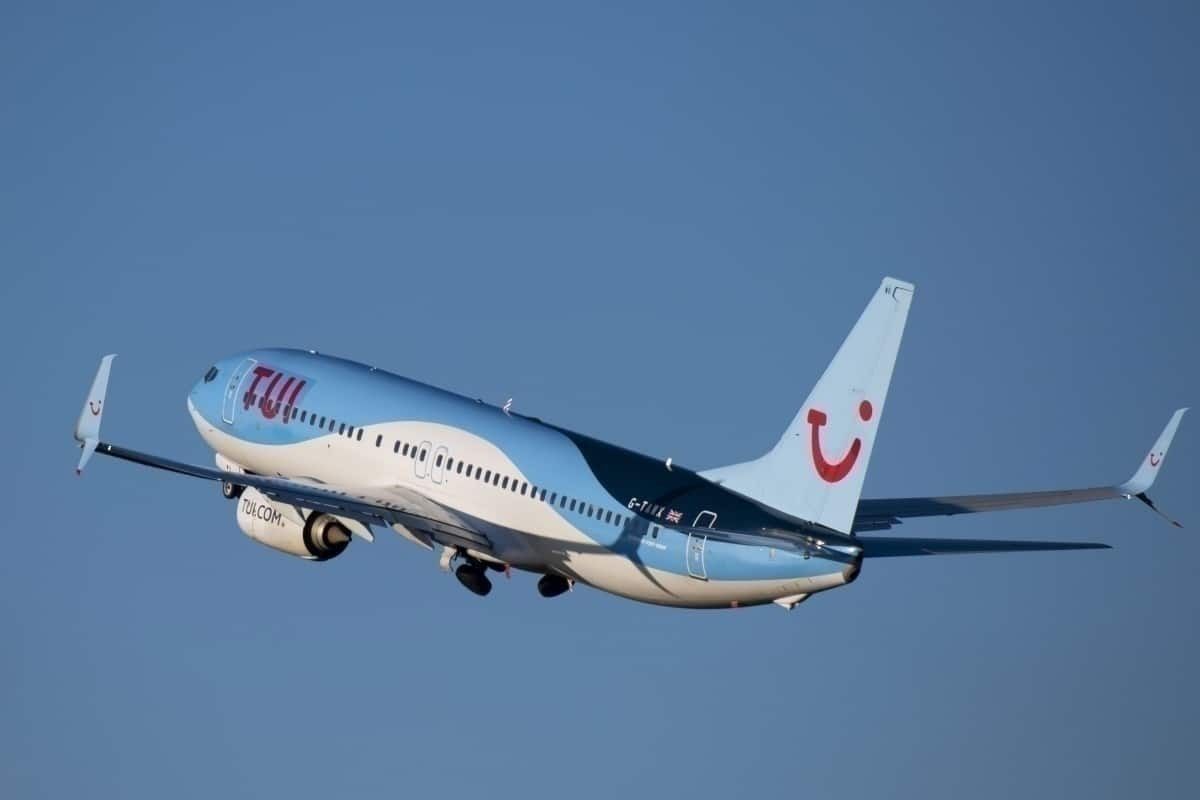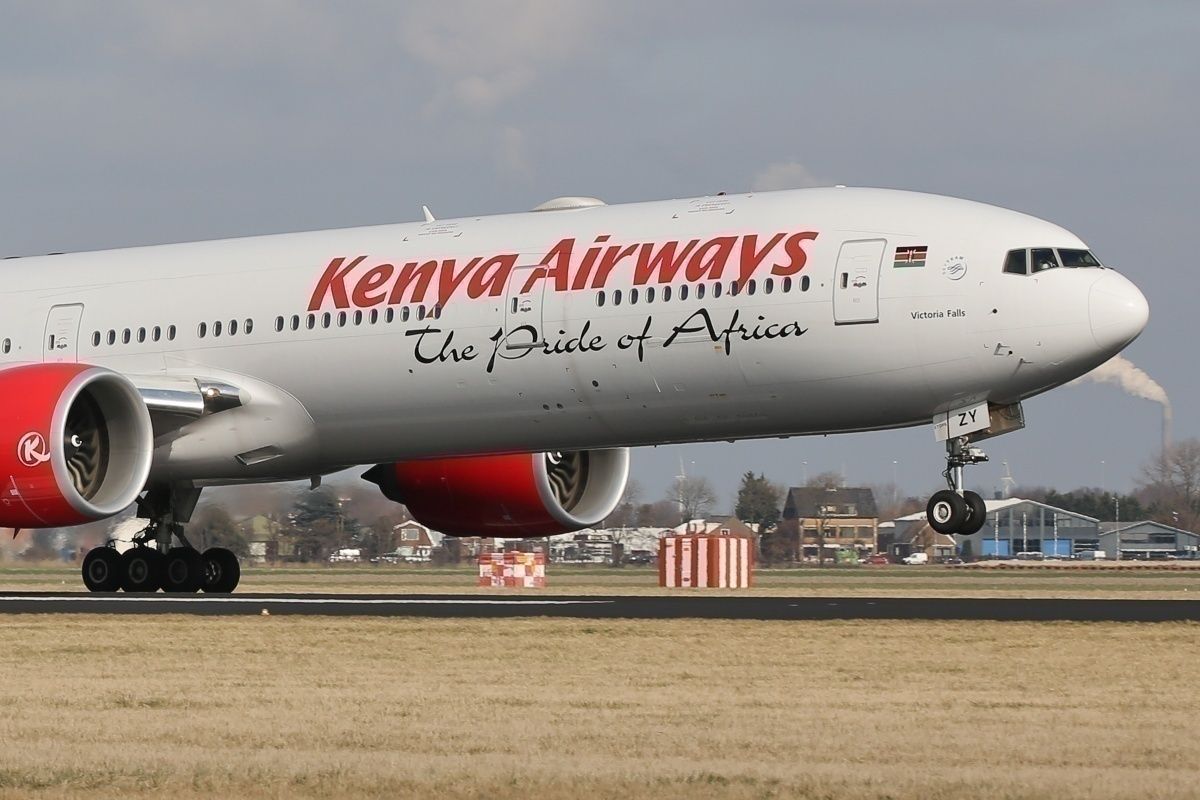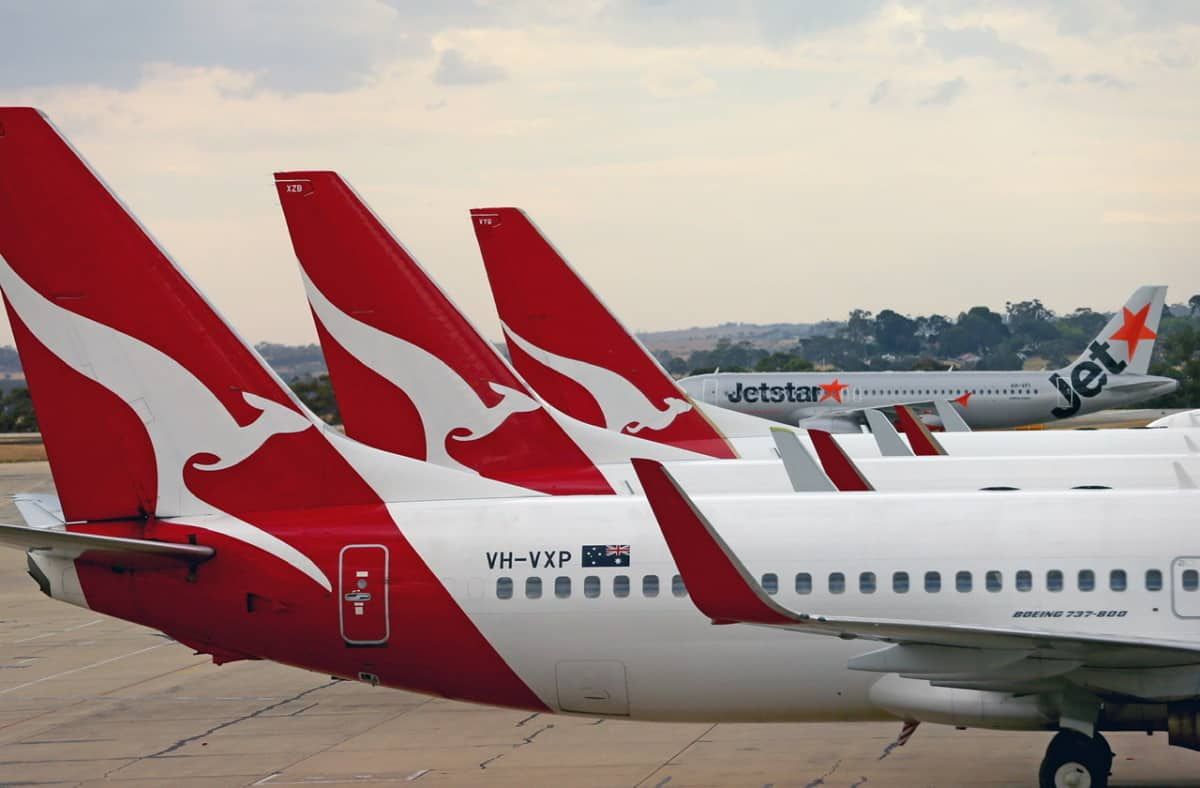For now, it seems like making vacation plans is a matter of consistently following the news and not committing to a particular destination. Thanks to COVID-19, the world is a different place than it was last summer, with several nations closing their borders to help combat the spread of this deadly virus.
With this in mind, we thought we would have a look at which counties Europeans can currently fly to in the hope that it might be able to help you decide where you would like to spend your summer holiday.
Starting with the United Kingdom, citizens of England, Scotland, Wales, and Northern Ireland need to self-isolate for a minimum of 14 days after returning from Canada, the United States, and many parts of Central and South America. Some countries in Asia, Africa, and the Middle East are also on the list, as is Spain after the European nation saw a spike in infections over the past week. Luxembourg is now on the United Kingdom's quarantine list after just being added yesterday following a massive increase in cases in the tiny European nation.
Now taking a look by region, here is a list of the following countries which are deemed safe to visit as of 31 July 2020.
Europe
- Andora:No restrictions of any kind are in place.
- Austria: No restrictions of any kind are in place.
- Azores:Before entry to the Azores, you must have taken a COVID-19 test no more than 72 hours before your arrival and tested negative. Once in the Azores, you need to be tested again and self-isolate until the result comes back negative.
- Belarus: Belarus is open to European tourists with a medical certificate showing a negative coronavirus test result. The test must have been done no later than 48 hours before arrival.
- Belgium:Belgium's borders are open to EU citizens with the only requirement that they fill out a passenger location form.
- Bosnia and Herzegovina:Europeans can enter Bosnia and Herzegovina if they have a negative COVID-19 test result no older than 48 hours.
- Bulgaria:Bulgaria is now open to Europeans with no restrictions.
- Croatia: Croatia is open to visitors, with the only requirement being a form to say where you are staying.
- Cyprus: European visitors to Cyprus must fill out a Cyprus Flight Pass online and upload proof of a negative COVID-19 test 24 hours before departure.
- Czech Republic:No restrictions are in place for EU citizens visiting the Czech Republic.
- Denmark: Denmark is open to all EU nations, but the situation can change if there is a spike in the number of cases in the country from which you are traveling.
- Estonia: Estonia is open to visitors from the European Union.
- France: France has, for now, at least no restrictions on people arriving from the EU. People coming from other countries must provide proof of a negative COVID-19 test or be willing to take on at the arriving airport.
- Germany:Germany has no restrictions in place for EU nationals.
- Greece: While Greece has no restrictions for European visitors, you may be asked to take a COVID-19 test.
- Hungary:Hungary has no restrictions on EU travelers, but you may be required to take a COVID-19 test if you display symptoms when entering the country.
- Iceland:Iceland is now open to all tourists, but you will be required to take a COVID-19 test when you arrive. The price of the test is 55€ ($65).
- Ireland:Ireland is open to visitors but asks people to restrict their movements for the first 14 days.
- Italy:Italy is open to European tourists with no restrictions in place.
- Latvia:At the moment, Latvia only requires visitors to fill out a contact form, but that could change at any time.
- Liechtenstein:Liechtenstein is fully open to all visitors from the EU.
- Lithuania:No restrictions are in place for Europeans visiting Lithuania.
- Luxembourg:Luxembourg's borders are currently open to Europeans, but given a recent surge in cases, only essential travel is advised.
- Malta:Malta is now open to European holidaymakers, but you will first need to fill out a public health form and then a contact form on arrival.
- Netherlands:The Netherlands is open to EU travelers but recommends that people arriving from high case number areas self-isolate for 14 days.
- Norway:Norway is open to all EU visitors without restrictions.
- Montenegro: Montenegro is open to all European visitors without restrictions.
- Poland: Poland is open to all EU nations arriving from within Europe.
- Portugal:When arriving in Portugal, your temperature will be checked, and if high, you will be referred to the medical authorities who may require you to take a COVID-19 test and self-isolate until the result comes back negative.
- Russia: In July, Russia began to relax some of its COVID-19 related rules. On arrival, you will have your temperature checked and are still required to show a negative COVID-19 test result that is less than three days old.
- Serbia:While there are no coronavirus restrictions in place, many countries advise against visiting Serbia due to the coronavirus risk factors.
- Slovenia:Slovenia is open to all Europeans, but those showing symptoms of the coronavirus will be refused entry.
- Slovakia:As one of the European nations with the least number of COVID-19 cases, Slovakia is regarded as a safe country to visit with no restrictions in place.
- Spain: Spain has reopened its borders to European travelers without restrictions. While there has been a spike in new cases in Aragon and Catalonia, the Costa Blanca and Costa del Sol are safe to travel to. British tourists, however, are required to self-isolate for 14 days when returning home from Spain.
- Switzerland: Switzerland has no coronavirus restrictions for people visiting from the EU.
- Turkey: Turkey is now open to European travelers who will be required to fill out a contact form and may be asked to take a COVID-19 test if they display any symptoms of the virus.
- Ukraine:Ukraine is once more open to tourists, but you will need to provide proof of health insurance. All arrivals from the United Kingdom are required to self-isolate for 14 days.
North America
- USA: The United States now does not allow entry to anyone from the European Union, Brazil, or China. US citizens and permanent residents can enter the country subject to standard requirements.
- Canada: Canada has currently closed its borders to foreign visitors and only allows essential travel between itself and the USA.
- Mexico:While the land border between the USA and Mexico remains closed, the counties' airports are open. The situation in Mexico is a developing story meaning you must first check the latest news before making any plans.
- The Caribbean:With regards to the Caribbean, those islands that rely heavily on tourism for the majority of their income are open to foreign visitors. Rules and regulations apply, so check with your airline before traveling.
Central and South America
- Argentina: Argentina'sborders are closed to foreign nationals and non-residents who wish to visit the country.
- Belize:Belize is currently closed to all foreigners but expects to resume international flights starting 15 August.
- Bolivia:All international flights and border crossings are closed to foreign nationals.
- Chile: Chile has suspended international flights and closed its borders.
- Colombia:Colombia's land and sea borders are closed, including the crossing point into Ecuador.
- Costa Rica: Costa Rica is reopening its airports and welcoming European tourists starting 1 August.
- Cuba:Cuba has closed its airports and cruise ship terminals until 15 August.
- El Salvador:El Salvador is currently closed to all foreign visitors.
- Ecuador: International flights have resumed to Ecuador with visitors required to show a negative COVID-19 test, which is not more than seven days old and a list of where they will be staying while in the country.
- Guatemala: All borders in Guatemala remain closed and international flights suspended.
- Guyana: Guyana has suspended all international flights to and from the country.
- Honduras: All land, air, and maritime borders remain closed to visitors.
- Panama:All international flights to Panama are suspended, and any citizens or residents able to return home must self-isolate for 14 days.
- Paraguay: All passenger flights have been suspended, and borders will remain closed until further notice.
- Peru:Peru has sealed its border and remains closed to all international travel.
- Suriname:Suriname has closed all of its borders.
- Uruguay:Uruguay has closed its borders to all but nationals and legal residents.
- Venezuela:Venezuela has imposed flight and border restrictions.
Asia
- Bangladesh: Visitors need to show proof of a negative COVID-19 test that is not more than 72 hours old.
- Bahrain: Foreign visitors are currently barred from entering Bahrain.
- Brunei: To visit Brunei, you will be required to take a COVID-19 test and prove you have sufficient funds to cover the cost of a 14 day stay in a quarantine facility.
- Cambodia: Travellers from all countries can now enter Cambodia, proving they have a recent negative COVID-19 test and proof of at least $50,000 of medical insurance.
- China:Despite a large number of international flights still operating between Europe and China. The Asian nation is not currently allowing foreign nationals to visit.
- Hong Kong:Only nationals and residents of Hong Kong are allowed to enter the country.
- India: India will only allow returning nationals to enter the country until further notice.
- Indonesia:All foreign nationals can no longer enter or transit through Indonesia.
- Iran: Technically, you can still travel to Iran, but given the country's high level of coronavirus cases, we would not recommend doing so at this time.
- Israel: Only citizens or permanent residents can enter Israel right now.
- Japan:Foreign visitors who have visited the UK or other affected countries will not be allowed to enter Japan, check with the Japanese embassy before traveling to see if you will be allowed to enter the country.
- Jordan: All land and sea borders are closed, and commercial flights suspended.
- Kazakhstan:Kazakhstan is currently closed to all foreigners.
- Kyrgyzstan:Most foreign nationals cannot enter the country, including permanent residence holders.
- Kuwait:The Kuwaiti government is no longer allowing non-Kuwaitis to enter Kuwait.
- Laos:Laos is no longer issuing visas to anyone visiting from a country that has had cases of the coronavirus.
- Lebanon: Travel to Lebanon is permitted, but you will need to have taken a COVID-19 test before your flight and then another upon arrival in Beirut. You must also have proof of medical insurance.
- Malaysia:Foreign nationals are permitted from entering Malaysia unless they have specific categories of residence or work permits.
- The Maldives:The Maldives is once more open to European travelers, but you will have your temperature taken on arrival and could have to pay for a COVID-19 test.
- Mongolia:Mongolia has closed all of its borders until at least the end of August.
- Myanmar (Burma):Myanmar is a closed country until at least 31 August.
- Nepal:A ban on international flights will be lifted on 17 August, but certain nationalities will still be barred from entering the country, including UK nationals.
- Oman:Only Omani nationals can enter the country at present.
- Philippines:Restrictions are in place regarding entry to foreign nationals with visas no longer being issued at the airport.
- Qatar:Qatari and foreign nationals with residency status will be allowed to enter the country starting from 1 August.
- Saudi Arabia:Saudi Arabia is only allowing visitors from select countries.
- Singapore:Only people with extenuating circumstances will be allowed to enter Singapore. Once there, you must pay $2,000 and quarantine in a designated government hotel for 14 days.
- South Korea: All foreign national travelers are being tested for COVID-19 on arrival in South Korea. If you test positive, you will be taken to a government healthcare facility.
- Sri Lanka:Sri Lanka has decided to open its borders to foreign tourists starting 1 August.
- Taiwan: Foreign nationals will be permitted to enter Taiwan but not for tourism or to study.
- Tajikistan: The government of Tajikistan has imposed a ban on foreigners until further notice.
- Thailand: All flights to Thailand have been suspended, and the country closed to foreign tourists until further notice.
- Turkmenistan:All international flights to and from Turkmenistan have been suspended.
- UAE:Currently, you are allowed to visit Dubai but must have proof of a recent COVID-19 test that came back negative and may be asked to retake the test at the airport.
- Uzbekistan:At the moment, it is possible to enter Uzbekistan for business visits with the country expected to open up to tourists shortly.
- Vietnam:Vietnam has banned foreign tourists from entering the country.
Africa
Rather than make a long list of each African country, it is easier just to say that every country on the continent remains closed to tourists, except for Egypt, Liberia, Rwanda, and Tanzania.
South Pacific
- New Zealand:The New Zealand border is currently closed to almost all travelers.
- Australia:The only people allowed into Australia right now are Australian citizens and returning permanent residents.
- Fiji:Fiji's borders remain closed to all but Fijian citizens and permanent residents.
- Papua New Guinea:Is closed to everyone unless they have a government letter allowing them in and have tested negative for COVID-19 in the last seven days.
- French Polynesia: French Polynesia is open to foreign tourists with proof of a recent COVID-19 health certificate and willingness to be subjected to a test at the border.
What are your thoughts about this list? Let us know what you think in the comment section.






